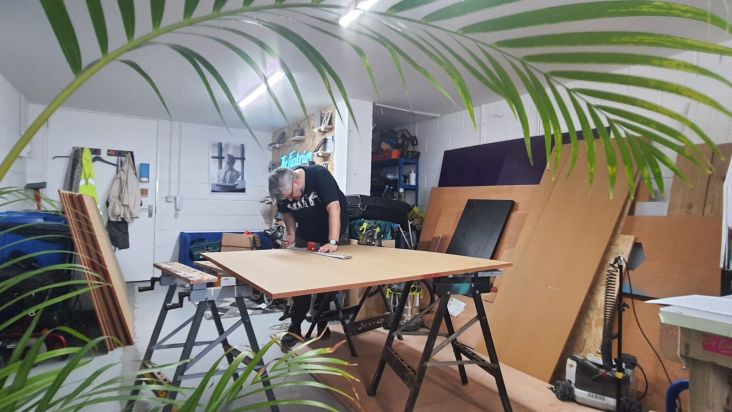How to turn negatives into positives in business
You know those moments when you do something wrong, step on someone's toes or receive an unsavoury email or tweet?

Image licensed via Adobe Stock
You want to slap yourself on the forehead or clench your teeth in embarrassment when you mess up. And you get that nasty stinging sensation of adrenaline when someone is horrible to you. It's awful.
You want the whole earth to swallow you up as you linger on your regrets and mistakes, wishing you could have done something different when it's too late. And you wonder what on earth you've done wrong to justify an attack by someone else.
Stop right there and stop beating yourself up! Everyone makes mistakes and has to deal with difficult situations and people every day. And although mistakes and bad things can't be undone, you can turn those negatives into positives.
I've put together the following scenarios to help you realise that when things go wrong, you can always turn things around and look on the brighter side. After all, it's the negatives in business that make us stronger, teach us a thing or two and help us to become our very best.
Saying the wrong thing
We can all put our foot in it sometimes and say the wrong thing. You might be attending a networking event, writing something in an email or chatting to someone over the phone. Suddenly, you open your mouth, blurt out the wrong words and they're not received too kindly.
Turning the negative into a positive
If you've said something wrong, be humble and apologise. Explain that you didn't mean for it to come across that way and start again. Sometimes, it's best to hold our hands up and admit when we've messed up, and this is the perfect time to do so. You can also try turning your mistake into a joke if you think it would be appropriate. Most people are reasonable and will forgive you for your big mouth.
Next time, try to train yourself to think before you speak. No one will mind if you take a few extra seconds to consider what you're going to say next. Also – try and become more self-aware and understand how tone, facial expressions and body language can be taken the wrong way and adopt positive physical expressions and movements instead.
Over-promising a client
It's quite easy to over-promise a client – especially when you want to make sure they get the very best support. Your client is now wondering when the project will be finished and time is ticking away. You're under pressure to deliver what you promised but have hit a brick wall.
Turning the negative into a positive
If you've messed up and can't deliver what you initially promised, then either bring in outsourced support or put your hands up and admit your mistake. Only you can judge how your client will react, so choose your path accordingly. There's certainly no harm in bringing in extra help if it means your client gets what you promised. It might mean you take the hit on their additional cost, but in future, you'll think twice before over-promising again. Best tip? Stick to what you know best and push your core skills.
Under-charging and over-servicing
We've all done it – quoted for a project which turned into a nightmare, taking much longer than expected and causing way too much stress. What you thought would take a week has turned out to be a month. And your client is refusing to pay for the extra time involved, only wanting to pay the original quote.
Turning the negative into a positive
Sometimes, we all have to bite the bullet and get on with it. It's especially the case if you've messed up and quoted too little for a project that's taking longer than expected to complete. But if you have to work extra time for free to get the job done, you have to weigh up whether it's worth walking away – even if it means the client won't pay you at all or you potentially burn bridges. It's a tough one and a mistake you might have to see through to the end. In which case, consider the lesson you've just learnt and how you should charge extra time for contingencies in future.
Losing a client to someone else
You worked incredibly hard on a proposal, went through two stages of meetings and spent ages trying to win a client, only to lose out to a competitor. Naturally, you're disappointed and wondering where it all went so wrong.
Turning the negative into a positive
Don't take it personally if you lose a potential client. It might be that you didn't have the right contacts or the right services. It might be that the other freelancer or agency had similar clients and felt like the better fit. It doesn't matter, and you shouldn't dwell on it.
If you can, get feedback. Then ensure you use that feedback to improve your proposals and pitches in future. Always thank the client for their time and never burn any bridges. Because if it doesn't work out with their chosen supplier, they might come back to you.
Coming under attack
Sometimes, people can be mean. You've messed up or done something they don't like, and they attack you. They can sometimes attack you for no reason at all. Their spats and cruel words can come suddenly and unexpectedly, and you're left feeling disheartened and miserable.
Turning the negative into a positive
You may well have said or done something wrong, but that's no excuse for anyone to be rude to you. If they are, take their comments on board and apologise if necessary. There's no point retaliating by spatting negative things back at your attacker. Especially if it's public via something like Twitter. Instead, be humble, kind and don't rise to the bait. If they're rude – ignore and move on with your life.
You could look at it another way – isn't it great that your attacker has now revealed their true colours? That you now know what idiots they are and you won't feel guilty for not helping them in future when the time comes? And trust me, the time always does come. Karma is a bitch, so smile to yourself when someone is nasty to you. The positive side is that you learn who to like and trust.
Business isn't going well
Freelancing is tough. Getting started is incredibly challenging. Ensuring you have enough money coming in will be your biggest hurdle. There's no such thing as a steady or guaranteed income when you work for yourself.
Turning the negative into a positive
Only a quarter of small businesses survive more than four years, so don't beat yourself up if times are hard. Instead, do everything in your power to generate new leads and win new business. Keep your overheads low and avoid unnecessary expenses like office space. Don't even think about living beyond your means. Always try and keep a safety net of savings in your bank.
When I first went freelance, the recession struck, and I lost all of my clients overnight – leaving me with the only option of returning to a job. Instead, I set up Creative Boom to help myself and others and here I am, years later, with some stable clients across the globe and a steady income. Don't give up! That's all I'm saying. I'm nobody special. I was just absolutely determined and worked very hard to ensure my business survived the downturn.








](https://www.creativeboom.com/upload/articles/86/862919952c0ad18439004228895a431dc6e45ffc_732.jpg)













